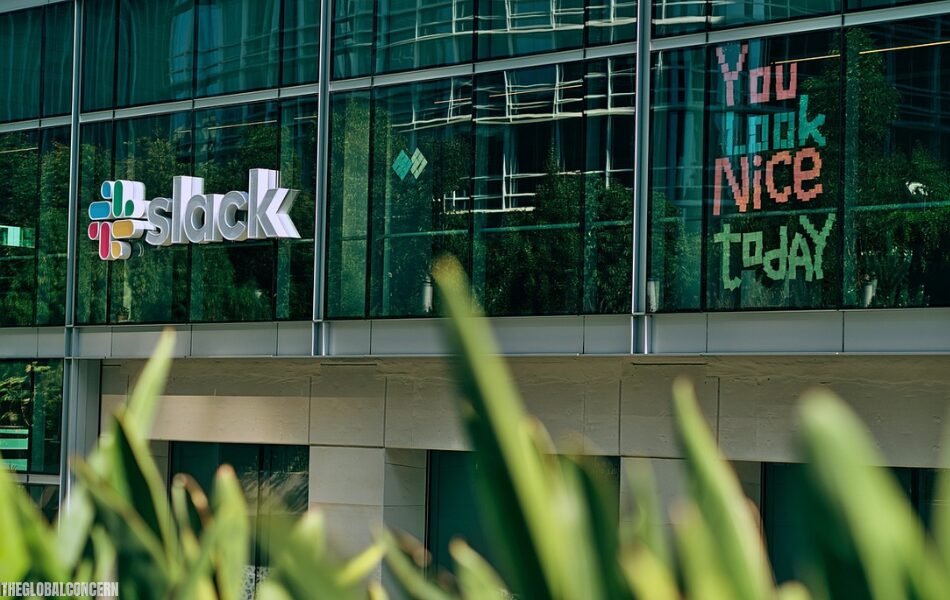Does Sermo Use Salesforce? Unveiling the Truth

Sermo, a renowned platform connecting healthcare professionals, has revolutionized the way physicians collaborate and share knowledge. As a cornerstone of the medical community, many wonder about the technological backbone powering Sermo. A common question that arises is: “Does Sermo use Salesforce?”
While Salesforce is a powerful CRM tool widely used across industries, its specific application within Sermo’s unique ecosystem requires careful consideration. While Sermo doesn’t explicitly leverage Salesforce, it employs a sophisticated technology stack designed to meet the specific needs of healthcare professionals.
A Platform for Healthcare Professionals
It serves as a digital forum where doctors can discuss medical cases, share insights, and collaborate with peers. This platform was founded to address the need for a secure, private, and moderated online space for physicians.
At its core, Sermo offers a multitude of features designed to enhance the practice of medicine. These include real-world case discussions, expert opinions, clinical trial information, and medical news. By fostering a community of like-minded professionals, Sermo empowers physicians to stay updated on the latest medical advancements and improve patient care.
Given the sensitive nature of medical information exchanged on the platform, data privacy and security are paramount. Sermo employs robust security measures to protect user data, ensuring confidentiality and integrity. By prioritizing these aspects, Sermo fosters trust among its users and maintains a secure environment for open dialogue.
Does Sermo Use Salesforce: A Deeper Dive
Sermo’s technological infrastructure is a complex system designed to facilitate secure, private, and efficient communication among healthcare professionals. While the specific details of Sermo’s tech stack are proprietary, it’s clear that the platform relies on a combination of cutting-edge technologies to deliver its services.
CRM systems, such as Salesforce, have revolutionized customer relationship management across various industries. In healthcare, these systems can streamline patient interactions, improve operational efficiency, and enhance data-driven decision-making. However, while Salesforce offers powerful features, it may not be the ideal fit for Sermo’s unique requirements.
Sermo’s primary focus is on fostering peer-to-peer collaboration and knowledge sharing among physicians. A traditional CRM system, designed for managing customer relationships, might not fully align with the specific needs of a platform like Sermo. Instead, Sermo likely leverages custom-built solutions tailored to the intricacies of healthcare collaboration.
To address the core question of whether Sermo uses Salesforce, it’s important to understand that Sermo’s primary goal is to provide a secure and private platform for healthcare professionals. While Salesforce could potentially be integrated into certain aspects of Sermo’s operations, such as managing user accounts or tracking engagement metrics, it’s unlikely to be the core technology driving the platform’s functionality.
Ultimately, Sermo’s success hinges on its ability to maintain a strong focus on privacy, security, and user experience. While Salesforce is a powerful tool, it may not be the optimal choice for a platform that requires such a high level of confidentiality and specialized features.
Sermo’s Commitment to Data Privacy and Security
Data privacy and security are paramount in the healthcare industry, especially when it comes to sensitive patient information. Sermo, as a platform that connects healthcare professionals, understands the critical importance of safeguarding this information.
Sermo implements robust security measures to protect user data from unauthorized access and breaches.. By employing these technologies, Sermo ensures that sensitive medical information remains confidential and secure.
Furthermore, Sermo adheres to strict data privacy regulations, such as HIPAA, to protect patient information. The platform’s policies and procedures are designed to minimize the risk of data breaches and unauthorized access. By prioritizing data privacy and security, Sermo fosters trust among its users and maintains a secure environment for healthcare professionals to collaborate and share knowledge.
A Glimpse into the Horizon
As technology continues to evolve, Sermo is poised to adapt and innovate to meet the evolving needs of healthcare professionals. While specific future developments remain speculative, it’s reasonable to anticipate several potential trends.
One exciting possibility is the integration of advanced AI and machine learning technologies into Sermo’s platform. By leveraging AI, Sermo could enhance its capabilities in areas like natural language processing, data analysis, and personalized recommendations. This could lead to more efficient and insightful discussions, as well as improved search functionality within the platform.
Furthermore, strategic partnerships with other tech companies could expand Sermo’s reach and capabilities. Collaborations with electronic health record (EHR) providers, medical device manufacturers, or pharmaceutical companies could offer new opportunities for data integration and knowledge sharing. These partnerships could lead to innovative solutions that address the challenges faced by healthcare professionals in the digital age.
Ultimately, the future of Sermo lies in its ability to adapt to the changing landscape of healthcare. By embracing emerging technologies and fostering strong partnerships, Sermo can continue to be a valuable resource for healthcare professionals worldwide.
Conclusion
In conclusion, while Sermo and Salesforce are both powerful tools in the healthcare industry, they serve distinct purposes. Sermo, as a specialized platform for healthcare professionals, prioritizes secure and private communication, knowledge sharing, and peer-to-peer collaboration. Salesforce, on the other hand, is a versatile CRM solution that can be applied to various aspects of healthcare operations, such as patient relationship management and sales.
To directly answer the question, “Does Sermo use Salesforce? While Salesforce could potentially be integrated into certain aspects of Sermo’s operations, it’s unlikely to be the core technology driving the platform’s functionality.
As the healthcare industry continues to evolve, data privacy and security remain paramount. Sermo’s commitment to safeguarding sensitive medical information is commendable, and its robust security measures help to ensure the confidentiality of its users.
We encourage you to share your thoughts and insights on the topic of Sermo and its technological infrastructure. Your comments and feedback can help to foster further discussion and understanding within the healthcare community.
FAQs
Q: Does Sermo use Salesforce?
A: While Salesforce is a powerful CRM tool, it’s unlikely that Sermo directly utilizes it. Sermo’s focus on secure, private, and specialized healthcare collaboration requires a custom-built technological infrastructure.
Q: What is Sermo and what are its primary functions?
A: Sermo is a digital platform designed to connect healthcare professionals. It provides a space for doctors to discuss medical cases, share insights, and collaborate with peers. Key features include real-world case discussions, expert opinions, clinical trial information, and medical news.
Q: How does Sermo ensure data privacy and security?
A: Sermo prioritizes data privacy and security by implementing robust measures such as advanced encryption, firewalls, and intrusion detection systems. The platform also adheres to strict data privacy regulations like HIPAA to protect sensitive medical information.
Q: What are the potential future developments and integrations for Sermo?
A: Sermo may integrate advanced AI and machine learning technologies to enhance features like natural language processing, data analysis, and personalized recommendations. Additionally, partnerships with other tech companies, such as EHR providers or medical device manufacturers, could lead to innovative solutions.








